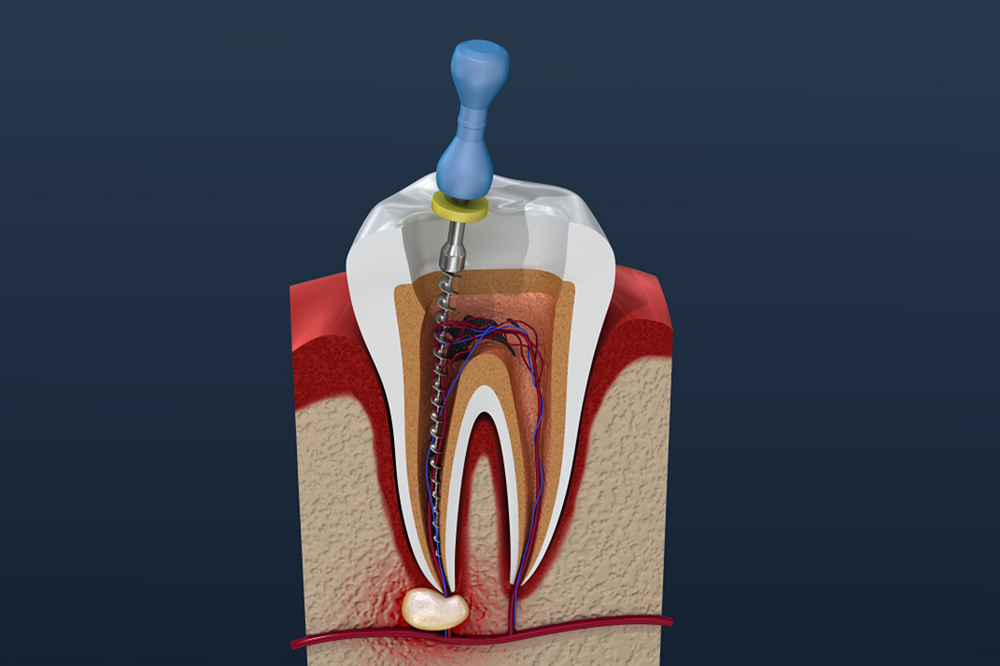What Causes a Tooth to Get Infected?
Bacteria can infect a tooth when they invade the dental pulp, which is located inside the tooth. Nerves, blood vessels, and connective tissue can be found in the dental pulp. A tooth infection can be caused by a number of things, such as:
- Untreated tooth decay: When decay extends to the tooth pulp, germs can infect the tissue and lead to an infection.
- Dental trauma: Cracks or fractures in the teeth might allow germs to enter the pulp and cause infection.
- Deep dental fillings: If a filling is damaged, it may irritate the pulp, increasing the risk of infection.
- Dental procedures: Several treatments or repeated drilling might weaken the tooth and increase its susceptibility to infection.
- Gum disease: Severe gum disease can expose tooth roots, which can cause the pulp to get infected with germs.
- Cracked or fractured tooth: A cracked or broken tooth can get infected because bacteria can enter the inner tooth through these openings.
How Do You Know if You Need a Root Canal?
A qualified dental examination is required to determine whether you need a root canal. However, there are a few common warning signs and symptoms that might mean you require a root canal, like:
- Persistent tooth pain: Intense or persistent tooth pain, particularly while biting or exerting pressure, may be a sign of an infected tooth.
- Temperature sensitivity: A higher than normal threshold for hot or cold meals and drinks that persists long after the stimulus has been withdrawn may be an indication of pulp inflammation or infection.
- Gum swelling and tenderness: Tender or swollen gums may indicate an abscess or underlying infection surrounding the damaged tooth.
- Discoloration of the tooth: A dying pulp or infection may be indicated by a darkening or discoloration of the tooth.
- Persistent or recurring gum pimples: Pimple-like lumps on the gums that are persistent or frequently appear might be signs of an infection near the tooth’s root.
- Loose tooth: A loose tooth might be an indication of an underlying illness if it comes loose suddenly and without any obvious reason or damage.
- Radiating pain: A toothache that spreads pain to the jaw, face, or ear could indicate a notable infection.
What is a Root Canal Procedure?
The soft tissue that is found inside the tooth and contains connective tissue, blood vessels, and nerves is known as the dental pulp. A root canal procedure involves removing that pulp when it’s become seriously damaged. Your dentist in Red Deer will generally perform the following steps:
- Anesthetic: To numb the region around the injured tooth, the dentist will inject a local anesthetic. This makes sure that you’re comfortable and have a quick recovery after the surgery.
- Accessing the pulp: The pulp is accessed by the dentist by making a tiny incision in the tooth, typically via the crown.
- Removal of damaged or diseased pulp: The dentist gently removes the affected or infected pulp from the tooth’s root canals using specialist equipment. Any leftover material or bacteria are removed by cleaning and reshaping the canals.
- Cleaning, disinfection, and filling: Following cleaning, the canals are disinfected to get rid of any lingering germs. A biocompatible substance known as gutta-percha is subsequently used to fill the canals, sealing them and preventing reinfection.
- Restoration: The tooth has to be repaired when the root canal procedure is finished. The treated tooth is often covered with a dental crown to offer strength, protection, and a natural look.
How Long Does the Process Take?
The length of a root canal procedure can vary depending on the number of canals, the tooth’s location, the complexity of the case, and the particulars of each patient’s circumstances. A root canal treatment near you normally requires one to three dentist visits, each lasting around 60 and 90 minutes. While certain situations could be easier and just require one visit to be fully cleansed and disinfected, others might require numerous visits.
It’s crucial to keep in mind that, while having a root canal, the priority is to ensure comprehensive treatment and proper healing before finishing the procedure swiftly. Your dentist in Red Deer will provide a more accurate time estimate at the first consultation or as the process progresses, depending on the complexity of the surgery.
Conclusion
Blackfalds Dental Centre is a great option if you’re looking for root canal therapy in Red Deer. You can expect excellent treatment and outstanding outcomes thanks to our skilled dental staff and cutting-edge facilities.
Get in touch now to take the first step toward fixing your smile!

